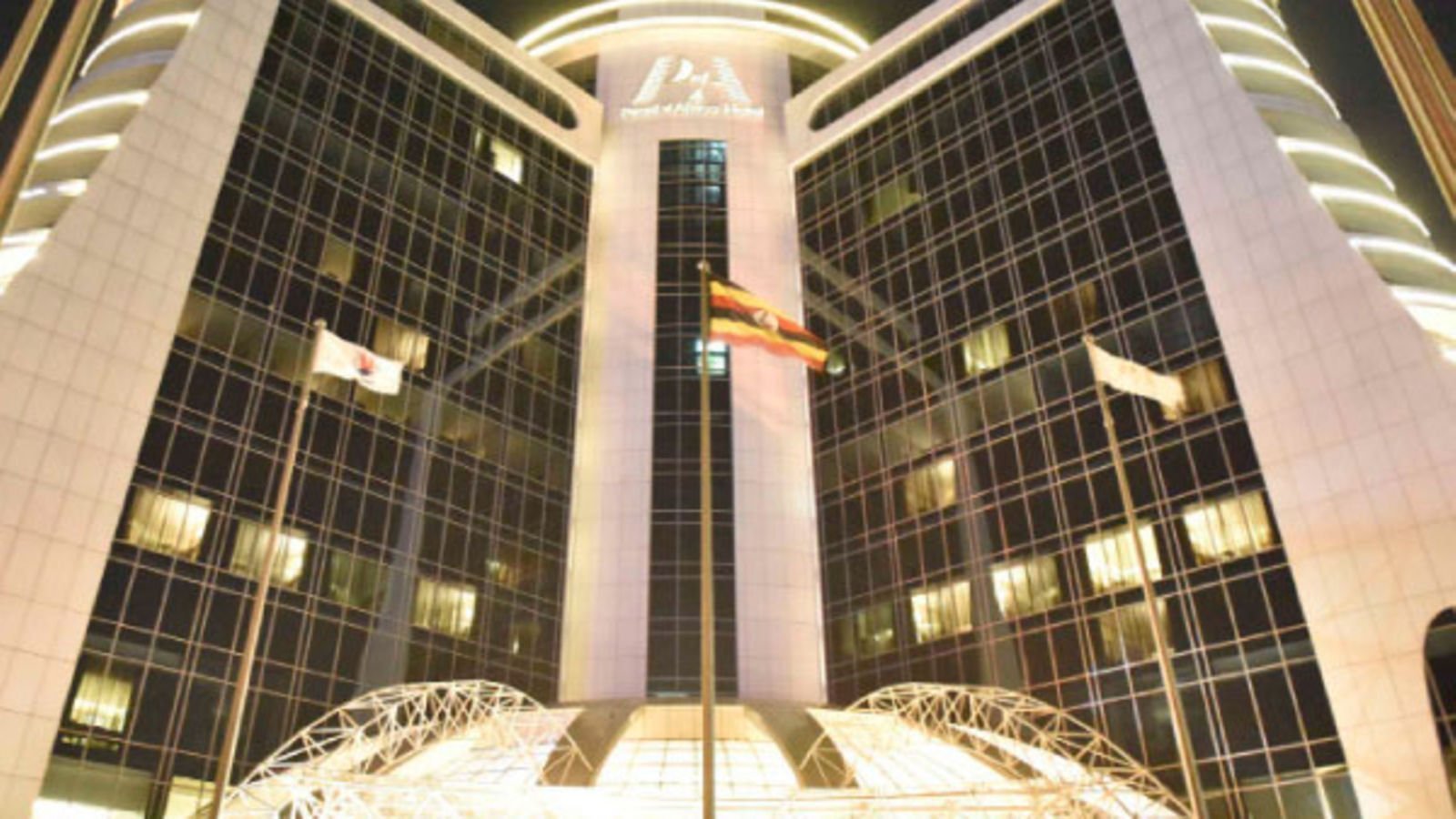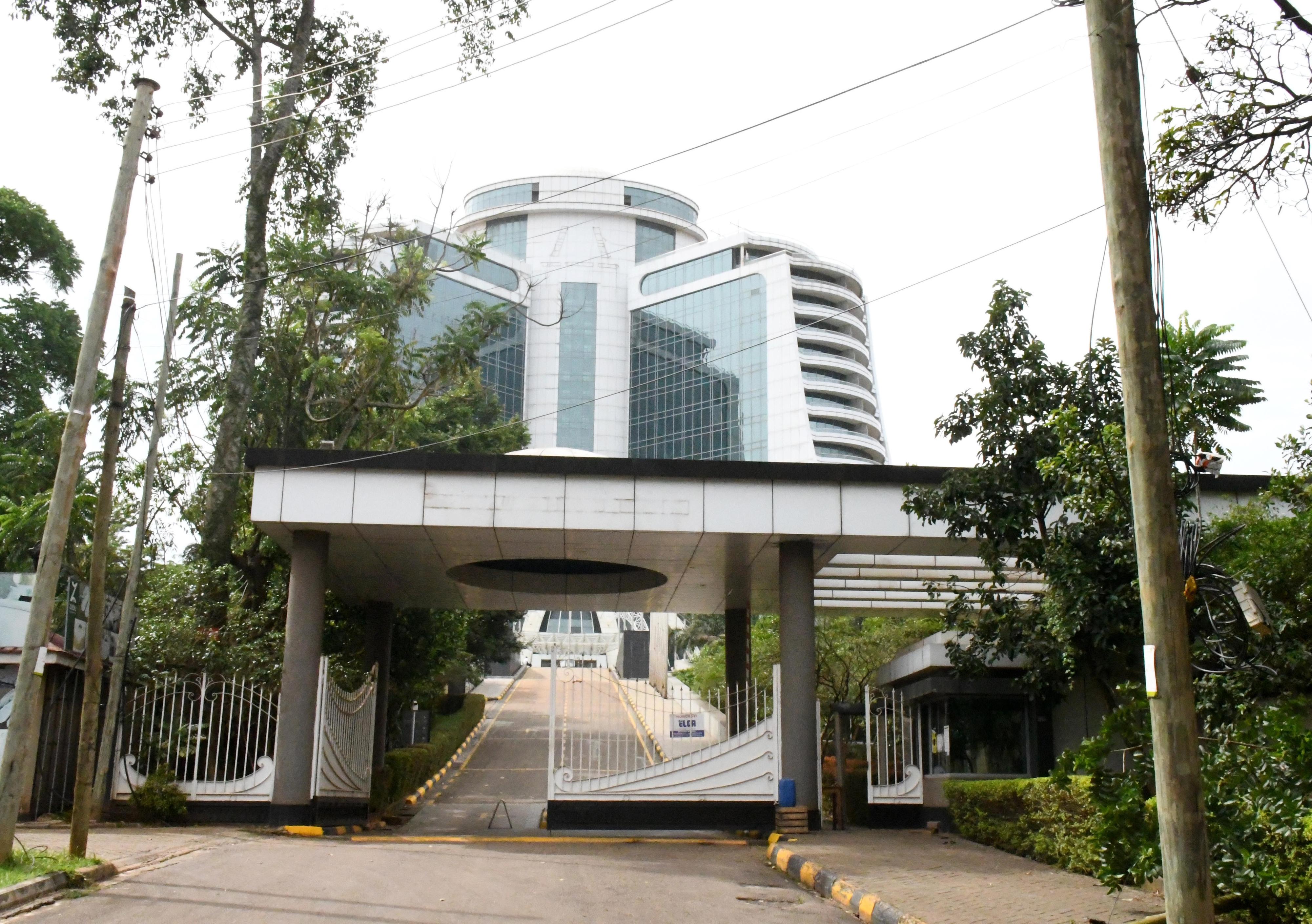Prime
How Aya Group’s loan rose to Shs624 billion

Pearl of Africa Hotel, one of Aya group property . PHOTO/ FILE
What you need to know:
- In a two-part piece, Stephen Kafeero looks at how Aya Investments for all intents and purposes sued itself into more debt after failing to clear an initial loan.
When Aya Investments (U) Limited began defaulting on various loans, the company behind the Pearl of Africa Hotel owed a South African-based lender approximately $118.8 million, inclusive of interest.
This obligation stemmed from a principal cumulative sum of $81.7m borrowed over 10 years. Instead of settling the outstanding amount, the company opted for litigation, initiating various court cases, all of which the company has lost. With accumulating interest and court fines, Aya Investments (U) Limited now owes the South African lender more than $165 million. The courts have largely cleared the sale of its flagship asset, the Pearl of Africa Hotel, to recover some of the money.
Genesis
Between August 13, 2007, and April 21, 2017, Aya Investments (U) Limited and Industrial Development Corporation of South Africa entered into various Financial Credit Agreements to finance the construction of the “Pearl of Africa Hotel” on Nakasero Hill, Kampala. The total principal sum lent on various dates under 20 of the six Financial Credit Agreements was $81,765,318.
Aya Investments and the South African lender executed various security agreements during that period that were collateral to the Financial Credit Agreements. The Security Agreements are specifically governed by Ugandan laws and the High court of Uganda has exclusive jurisdiction.
A breakdown in the relationship between Aya Investments and the South African lender saw the latter faulting the former for being in continual default of the terms of the Financial Credit Agreements. The lender then, on September 13, 2017, issued a notice to Aya, recalling the outstanding loan sum then owed, which stood at $118.8m.
Subsequently, the South African lender on September 14, 2017, issued a Notice of Default, which was served to Aya’s South African lawyers, Schindlers, by the lender’s advocates, ENS Advocates, in Uganda. At this stage, the South African lender had effectively started recovery procedures against Aya’s securities.
Aya’s lawyers, Schindlers, demanded that the dispute between the parties be referred to arbitration in terms of the relevant arbitration clauses contained in the Financial Credit Agreements but the lender maintained all through that there were no arbitral issues and commenced foreclosure proceedings under the Securities Agreements.
Aya up in arms
On September 29, 2017, Aya sued, seeking interim measures of protection from the Commercial Division of the High court, pending South Africa arbitration. Aya specifically sought to restrain the lender from advertising the Hotel for sale and also sought to restrain the lender from interfering with the management or operations of the Hotel business pending the disposal of the South Africa arbitration proceedings which Aya stated it had commenced.
The South African lender insisted that there was no dispute in the Financial Credit Agreements that required arbitration since the lender was only exercising its rights under the various security instruments, and had issued a notice of default calling upon the applicant to pay the entire outstanding sum.
The court agreed with Aya on October 10, 2017, and issued a temporary injunction which was exded on several occasions by the court. In a subsequent ruling of February 9, 2018, the court referred the dispute between the parties to arbitration in South Africa, which the court expressly directed should commence forthwith.
Because the lender had disregarded the restraining orders and continued to threaten foreclosure by execution against Aya’s assets and its guarantors, Aya on November 22, 2017, filed a case in the Commercial Division of the High court against the lender for contempt of court, defamation and libel, breach of contract, economic duress and unconscionability.
Aya also sought general and special damages and aggravated damages. The respondent filed a defence to this suit indicating that the matters in a dispute relating to Financial Credit Agreements could only be tried and resolved in the contractually agreed South Africa arbitration.
Aya again sued but the ruling was delivered on February 9, 2018, when all the prayers and orders sought had been overtaken by events. In the meantime, the lender on January 31, 2019, by letter to the Arbitration Foundation of South Africa (AFSA) requested and commenced arbitration proceedings. This time Aya opposed the move arguing that the arbitration proceedings had been commenced in contempt of the orders of the court. Aya declined to participate in the arbitral proceedings. On its part, the South African lender applied to the court to stay Aya’s suit pending the determination of the South Africa arbitration proceedings that had been earlier commenced and were continuing.
Lender succeeds
In the Arbitral Award, the South African lender was awarded against Aya, $153m. This comprised the unpaid principal sum lent over the 10 years from August, 2007 to April, 2017 of US$ 81,765,318 and the unpaid interest thereon at the facility rate for the said 10-year period being US$ 71,308,957. The South African lender was also awarded further interest from the date of the Award until payment in full. By September 30, 2020, the Aya loan had increased to US$153,027,275 from the $118.8m when it started challenging the South African lender’s process of recovering the loan.
Unsatisfied, Aya on October 30, 2021, filed an application seeking to have declared null and void the South Africa arbitration proceedings. Aya also asked the court to set aside the resultant South Africa Arbitration Award of Bruce Collins QC of September 11, 2021. Meanwhile, on December 16, 2021, the South African lender applied for the registration of the arbitration award as a decree of the Uganda High court.
Earlier, on October 7, 2021, Aya had sued to seek a declaration that arbitration proceedings were commenced by the lender in contempt of court, in violation of the principles of res sub-judice, public policy, and thus the resultant award was illegal, null, and void, and that the arbitral award made by Bruce Collins QC be set aside with costs. Aya’s application was dismissed on May 15 for lack of merit.
The court consequently on June 22 made an order recognising the Arbitral award for enforcement as a decree of Uganda’s High Court.
Consequently, the lender applied for execution of the award seeking recovery of $165m. A warrant of attachment and sale of the Pearl of Africa Hotel was issued on September 22 and on September 25 the property was advertised for sale by public auction which was due to take place on October 26.
Valuation contested
On October 11, a bailiff was appointed by M/s Landpoint Associates to carry out valuation of the Pearl of Africa Hotel. The bailiff was tasked with issuing a report indicating both the market value and forced sale value which would be used as a guiding document for the auction.
The firm subsequently furnished a report dated October 18 in which it attached a Market value of $87m and a forced sale value of $52m on the Pearl of Africa Hotel. On November 14, the court approved that valuation report as the basis upon which the sale under execution of the property would proceed.
Aya opposed this and told the court that they had previously engaged one Moses Opito of M/s Salem Appraisal on September 14 who valued the Pearl of Africa Hotel at a market value of $370m.
Aya informed the court that the valuation by the lender is “manifestly low and a gross undervaluation”.
“Not only does the report not provide for the value computation of the valuation approach, but it also does not particularise the specific values of the different property components. The report does not provide the criteria/mathematical computation of how the above formulas and computations were applied and the figures/values arrived at,” Aya told the court.
If the Hotel was sold at the Aya’s purported valuation, the company could easily pay off the lender and earn a substantial amount after the sale.
In a December 1 ruling, Justice Stephen Mubiru, the head of the Commercial Division of the High court ruled that the valuation report relied on by the South African lender “is error-free, neutral and complete, and sufficiently comprehensive to support the recommended value”. It is on that basis, Justice Mubiru ruled, that the court finds no reason to set the report aside as Aya wanted.
Justice Mubiru ruled that the valuer appointed by the lender did not commit any error which could justify the court’s interference. He noted that valuer considered all the relevant factors, and adopted a reasonable approach. The alleged errors, Justice Mubiru ruled, only amounted to differences in opinion between experts on the extent of detail to be contained in a valuation report concerning real property.
“The applicant was unable to show that the original valuer adopted a demonstrably wrong approach, or that the method of valuation was made on a wholly erroneous basis, or that it committed a mistake which goes to the root of the valuation process. There is nothing in the report to indicate that the considerations that weighed with the valuer in arriving at the opinion are impermissible or unacceptable. That another valuer using a slightly different approach holds a different opinion, of itself is not sufficient to call for interference by the court,” Justice Mubiru contended.
Value
On October 11, a bailiff was appointed by M/s Landpoint Associates to carry out valuation of the Pearl of Africa Hotel. The bailiff was tasked with issuing a report indicating both the market value and forced sale value which would be used as a guiding document for the auction.
The firm subsequently furnished a report dated October 18 in which it attached a Market value of $87m and a forced sale value of $52m on the Pearl of Africa Hotel. On November 14, the Court approved that valuation report as the basis upon which the sale under execution of the property would proceed.




